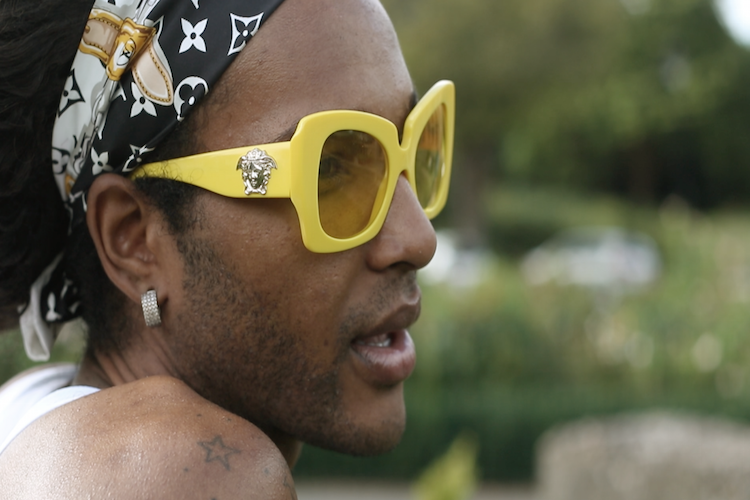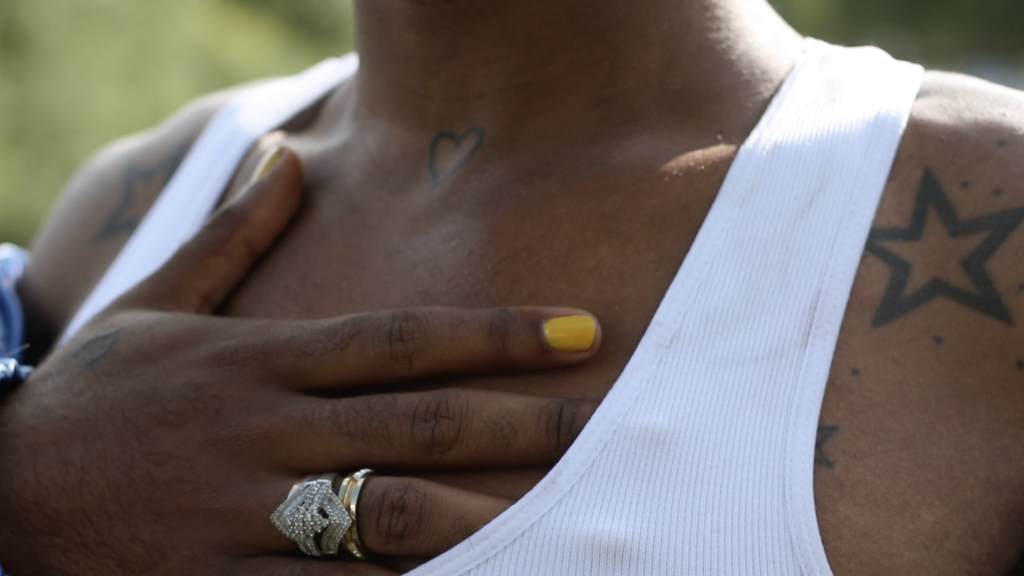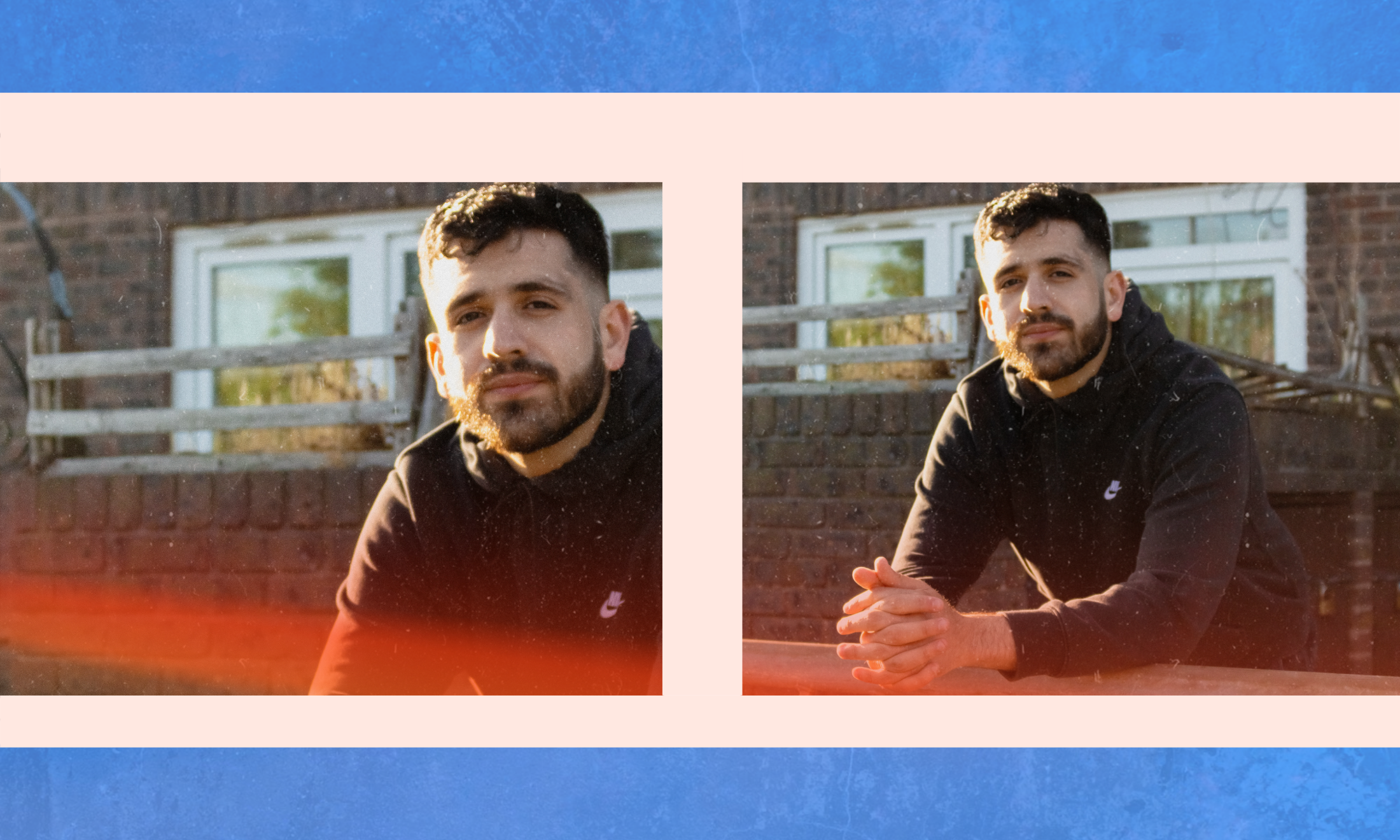
Jay Boogie, aka rap’s prettiest princess aka master of the purr aka your new favourite artist, returned this summer with his latest mixtape: Jesus Loves Me Too. With a title inspired by passive-aggressive passerby whispers of ‘Cristo te ama’ (Jesus loves you) meant to “get you to tone it down”, the joint is a clapback to homophobia, an encouraging call to take ownership of all your identities, and an intentional statement “meant for you to say and [to] believe it”.
The tape is filled with bops, immediately setting the tone with gospel singer Kim Burrell’s infamous hollering on the “perverted” ways of the “homosexual spirit”, remixed with whirring synths and a seductive call to attention. The record is out to please, provoke, and prove a point, taking us on a journey through self-belief, resistance, and growth all spurred by Boogie’s mother’s reminder to “value yourself…live your truth and get your loot”.
We meet the Brooklyn baddie at Pueblito Paisa in Seven Sisters in the middle of his whirlwind promo tour across Europe. He’s just come from a trip through Peckham, on a voyage black Londoners know all too well – the hunt for that one hairdresser that niced your hair in record time. But, like many searches for black-run spots in the capital, “gentrification took over her shop and she’s not there any more”. Instead, all he’s seen are “generic pop up buildings” and, much like New York’s skyline, it’s become a portrait of “sterile glass titanium buildings that are just standing there next to the projects”.
“I’m staying in Hackney now and it just seems like there’s nothing to hold on to anymore; not a sound, not a smell – and in New York it’s becoming the same thing. If you don’t own something then you’re sent out”
This change in London’s landscape is something you can’t ignore when you live in the middle of it, and is something Boogie has also caught onto during his return to the city. “I’m staying in Hackney now and it just seems like there’s nothing to hold on to anymore; not a sound, not a smell – and in New York it’s becoming the same thing. If you don’t own something then you’re sent out.”
The connection between the two cities is something he’s highlighted before. In a 2015 interview with NTS he referred to south London’s Peckham and Brooklyn’s Flatbush as the “same shit, different currency”. But this time around it’s the loss of identity that makes their association so stark. “In New York sometimes I’ll be on my way to a place and I’ll be driving in circles like ‘it used to be right here, where is it?’ You have all these older black women in Brooklyn who’ve owned homes for years and years and they’ll be offered millions of dollars to leave but they’re refusing because home is much more than the thing you live in. It might be the thing that keeps you alive. It might be the thing that keeps you conscious”.
The importance of home and community have shone through in all aspects within the making of Jesus Loves Me Too. The album artwork’s standout design was the result of his nail artist friend Naomi’s calligraphy skills, his brother’s hair expertise, and a crew that “got what I wanted to do and wasn’t too far of a reference because they were all black, they know what church looks like, and what the women who go church look like”. This network of friends and organic approach to creativity then extended itself to the international promo tour that Boogie notes has “been full of amazing, understanding, feminine energy” from likes of BORN N BREAD, Pxssy Palace and Berlin Community Radio.
The community have come out and come through, raising discussion around the record and the messages it tackles. “I think everybody that I wanted to receive it, received it with open arms. My purpose has been served – there are trolls on the internet who are being stupid, but that is also a part of my purpose. In this project I really wanted to evoke challenge and conversation. I wanted people to question my motives”.
“The other day somebody shared an open letter with [Kim Burrell] and it was another gay black man expressing his discomfort and I just slide into the comments section and put a link to my mixtape like, same”
And the intro track did just that when one fan online couldn’t wrap their head around why Kim Burrell’s voice had been used, and tried to call Boogie out on it. “I DM’d him and I was like ‘babes what’s the conversation? I’m here, you know I’m here for us, for you. Let’s talk about it, don’t just shun me like that on Facebook. I’m gonna put her in this light and remix it in a way that makes sense for me. I’m gonna make an example out of her, set the mood for exactly why I’m making this mixtape, for people like her and it works. She said it. I’m not manipulating her words to say something she didn’t say. She did say it. I know my angle is a real fucking thing”.
It’s this upfront, honest approach to talking about real life that makes Jay Boogie’s work so universally relatable, uplifting, and healing. It makes quoting lyrics and connecting with other people through the songs so easy, because it is our world. Although articulated with a sharp tongue and laid out in patterns beyond my realm of imagination, he manages to exude a familiarity that is everything you want from an artist and more.
The link between the artist, the art, and the listener has been crucial to the expansion of JLMT this summer. “I’m still filling in the gaps because you know I do everything myself. Everywhere I go I take a lot of pride in the fact that black people will help me”. From borrowing edge control to the getting the guy at the food counter to follow him on Instagram, the Boogie operation begins with himself. “We have this joke about the promo tour, sometimes when I’m sat at home my friend Larry B will be like ‘oh really you’re just gonna miss out on this chance to network?’”
And he’s low key right. In a world jampacked with the same 808 beats, insincere mainstream musical diversity projects, and the never ending list of male musicians’ abusive tendencies, it seems the only way to seek out decent, honest artists that reflect your world, make you think and make you dance is by laying your trust in the power of word of mouth and friend recommendations. With that being said, this is me telling you to go and listen to this mixtape, support your independent artists, take it in, get your life, and know that you are loved.
“I just hope my community really take it up for themselves cause I’m gonna move onto another project. And even if you don’t like all the records, I hope you can at least understand my approach and my angle”.
Listen to Jesus Loves Me Too below:












